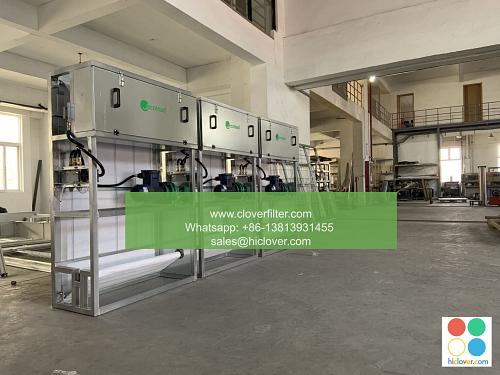Air Filter Logistics: A Guide to Choosing the Right Filter for Your Home

Are you tired of breathing in polluted air in your home? Do you suffer from allergies or respiratory issues due to poor indoor air quality? If so, it’s time to consider upgrading your air filter logistics. In this article, we’ll explore the world of home air filtration systems and provide a comprehensive guide to choosing the right air purification filter for your living space.
Understanding the Importance of Air Filter Logistics
Air filter logistics play a crucial role in maintaining good indoor air quality. A high-quality air filter can help remove airborne pollutants, such as dust, pollen, pet dander, and other particulate matter, from the air. This is especially important for people who suffer from allergies and respiratory issues, as well as those who want to create a healthy indoor environment for their families.
Types of Air Filters: Application Areas and Key Features
There are several types of air filters available, each with its own unique characteristics and application areas. Some of the most common types of air filters include:
* HEPA (High Efficiency Particulate Air) filters: These filters are designed to capture 99.97% of particles as small as 0.3 microns, making them ideal for allergy sufferers and those with respiratory issues.
* Activated Carbon filters: These filters are designed to capture odors and gases, making them ideal for use in kitchens and bathrooms.
* Electrostatic filters: These filters use electrostatic charges to attract and capture particles, making them ideal for use in high-traffic areas.
* Pleated filters: These filters are designed to capture dust and other particulate matter, making them ideal for use in living rooms and bedrooms.
Key Considerations when Choosing an Air Filter
When choosing an air filter for your home, there are several key considerations to keep in mind. These include:
* Filter size and type: Make sure to choose a filter that is the correct size for your air purification system and that is designed to capture the types of particles you want to remove from the air.
* Filter efficiency: Look for filters with a high MERV (Minimum Efficiency Reporting Value) rating, which indicates the filter’s ability to capture particles of different sizes.
* Filter maintenance: Some air filters require regular maintenance, such as cleaning or replacement, to ensure they continue to function effectively.
* Cost and budget: Air filters can range in price from under $10 to over $100, depending on the type and quality of the filter.
Application Areas for Air Filters
Air filters can be used in a variety of application areas, including:
* Residential homes: Air filters can be used to improve indoor air quality and reduce the risk of allergies and respiratory issues.
* Commercial buildings: Air filters can be used to improve indoor air quality and reduce the risk of sick building syndrome.
* Industrial settings: Air filters can be used to remove hazardous particles and gases from the air, improving worker safety and health.
Conclusion
Choosing the right air filter for your home can be a daunting task, but by considering the key factors outlined in this article, you can make an informed decision and improve the indoor air quality in your home. Remember to consider the type of filter, filter efficiency, maintenance requirements, and cost when making your decision. With the right air filter, you can breathe easy and enjoy a healthy indoor environment. It seems like you’re looking for a prompt to start a conversation or perhaps to generate some text based on a specific topic or theme. Could you provide more details about what you’re interested in? This could be anything from a creative writing prompt to a question about a particular subject. I’m here to help!

